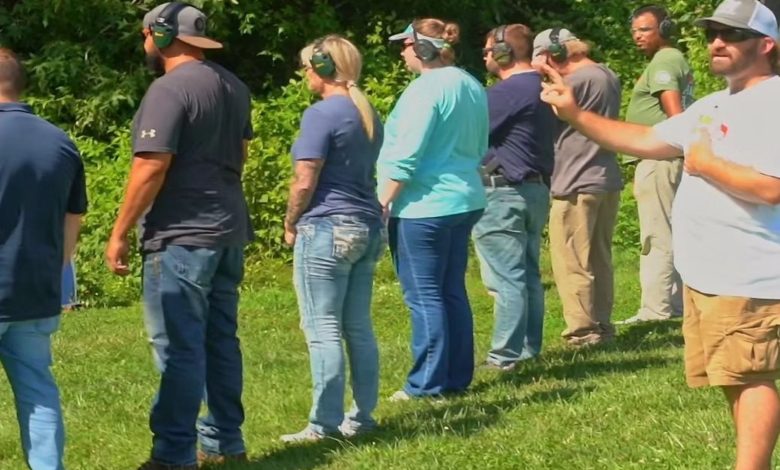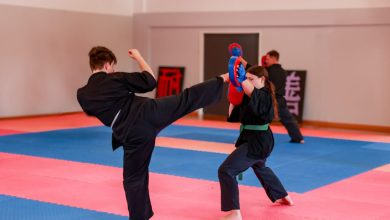Do I Need Firearms Training to Own a Gun in Maryland?

If you’re considering purchasing a firearm in Maryland, you might be asking yourself, Do I need firearms training to own a gun in Maryland? The short answer is: in most cases, yes. Maryland has some of the strictest gun laws in the United States, and understanding the requirements is crucial before you make a purchase.
This guide will walk you through everything you need to know about firearms training requirements in Maryland, how to get started, and what to expect from the process.
Understanding Maryland’s Firearm Ownership Laws
Maryland law mandates that anyone who wants to purchase, rent, or receive a handgun must complete an approved Maryland Handgun Qualification License Course (Hql). Without this license, you cannot legally acquire a handgun.
However, if you are purchasing a long gun (such as a rifle or shotgun), the training requirement does not apply. Even so, it’s highly recommended that you seek training for safety and proficiency reasons.
If you’re serious about legally and responsibly owning a handgun, you must plan to take certified firearms training first.
What is the Handgun Qualification License (HQL)?
The HQL is a mandatory license required for anyone wishing to buy, rent, or receive a handgun in Maryland. To obtain this license, you must:
- Complete a 4-hour firearms safety training course.
- Fire at least one live round during supervised training.
- Submit fingerprints for a background check.
- Pass a criminal and mental health screening.
Certain individuals, such as active law enforcement, retired military, and those with a Maryland Wear and Carry Permit, are exempt from the training but must still obtain an HQL.
For a full breakdown of who needs an HQL and how to get started, you can look at this web-site for more detailed resources and updates.
Training Requirements Explained
The required 4-hour HQL course is designed to ensure you understand:
- Maryland firearm laws
- Basic firearm mechanics and operations
- Safe handling practices
- Responsible storage and transportation of firearms
- Live-fire proficiency under instructor supervision
This training must be conducted by a Maryland State Police-approved instructor. Online courses are available for some parts of the instruction, but the live-fire component must happen in person.
Don’t rush this step. Completing the course properly not only fulfills a legal obligation but also builds the foundational skills you’ll need for safe and effective firearm ownership.
Exemptions from Firearms Training
You might be exempt from the training requirement if you fall into certain categories:
- You have already completed a certified firearms course within the past 3 years.
- You are an active or retired law enforcement officer.
- You are a qualified handgun instructor.
- You possess a valid Maryland Wear and Carry Permit.
If you believe you qualify for an exemption, you’ll still need to apply for the HQL and provide supporting documentation. Always double-check your eligibility because Maryland enforces its requirements strictly.
Steps to Complete Your Firearms Training
- Find an Approved Instructor: Only courses offered by certified instructors are recognized by the Maryland State Police.
- Register for a Class: Many classes offer flexible schedules, including evening and weekend options.
- Attend the Full Training: Ensure you attend all hours and participate actively in both the classroom and live-fire portions.
- Obtain a Certificate: After successfully completing the course, you’ll receive a certificate that you’ll submit during your HQL application.
- Submit Your Application: Complete your fingerprinting and submit your HQL application online through the Maryland State Police Licensing Portal.
If you’re wondering where to start, learn more here about trusted training providers and how to enroll quickly and easily.
How Long Does Firearms Training Take?
Most HQL courses are structured to last around 4 hours, but you should allocate additional time for fingerprinting and paperwork. In total, you can expect to spend an afternoon or evening completing the required elements.
If you’re opting for additional defensive shooting courses or advanced safety classes, those will require extra time but will significantly enhance your skills and confidence.
Why Firearms Training Is Important Beyond Legal Requirements
Even if you were somehow exempt from the legal requirement, firearms training remains one of the best investments you can make in your personal safety and the safety of those around you.
Proper training ensures you:
- Handle firearms confidently and safely
- Understand the legal responsibilities of gun ownership
- React appropriately in high-stress situations
- Secure your weapon to prevent unauthorized access, especially by children
An untrained gun owner is a risk not just to themselves but to everyone around them. Knowledge is your most powerful tool for responsible firearm ownership.
Common Mistakes to Avoid
When it comes to meeting Maryland’s firearms training requirements, steer clear of these common pitfalls:
- Skipping live-fire practice: This is non-negotiable for your HQL.
- Choosing non-certified instructors: Only Maryland State Police-approved instructors are acceptable.
- Failing to double-check exemptions: Don’t assume you’re exempt without verifying.
- Delaying fingerprinting: Your application can’t move forward without completed fingerprints.
By planning ahead and completing each step carefully, you’ll avoid frustrating delays.
Final Thoughts
So, do you need firearms training to own a gun in Maryland? If you’re planning to purchase a handgun, the answer is a firm yes—you must complete the Handgun Qualification License course before you can legally acquire one.
While long guns don’t require training by law, smart firearm ownership always includes a commitment to proper education and safety. Whether you’re a first-time buyer or a seasoned enthusiast, investing in quality firearms training will protect you, your loved ones, and your rights.
Take the time now to prepare properly, and you’ll step into gun ownership with the confidence and responsibility that every firearm owner should have.



